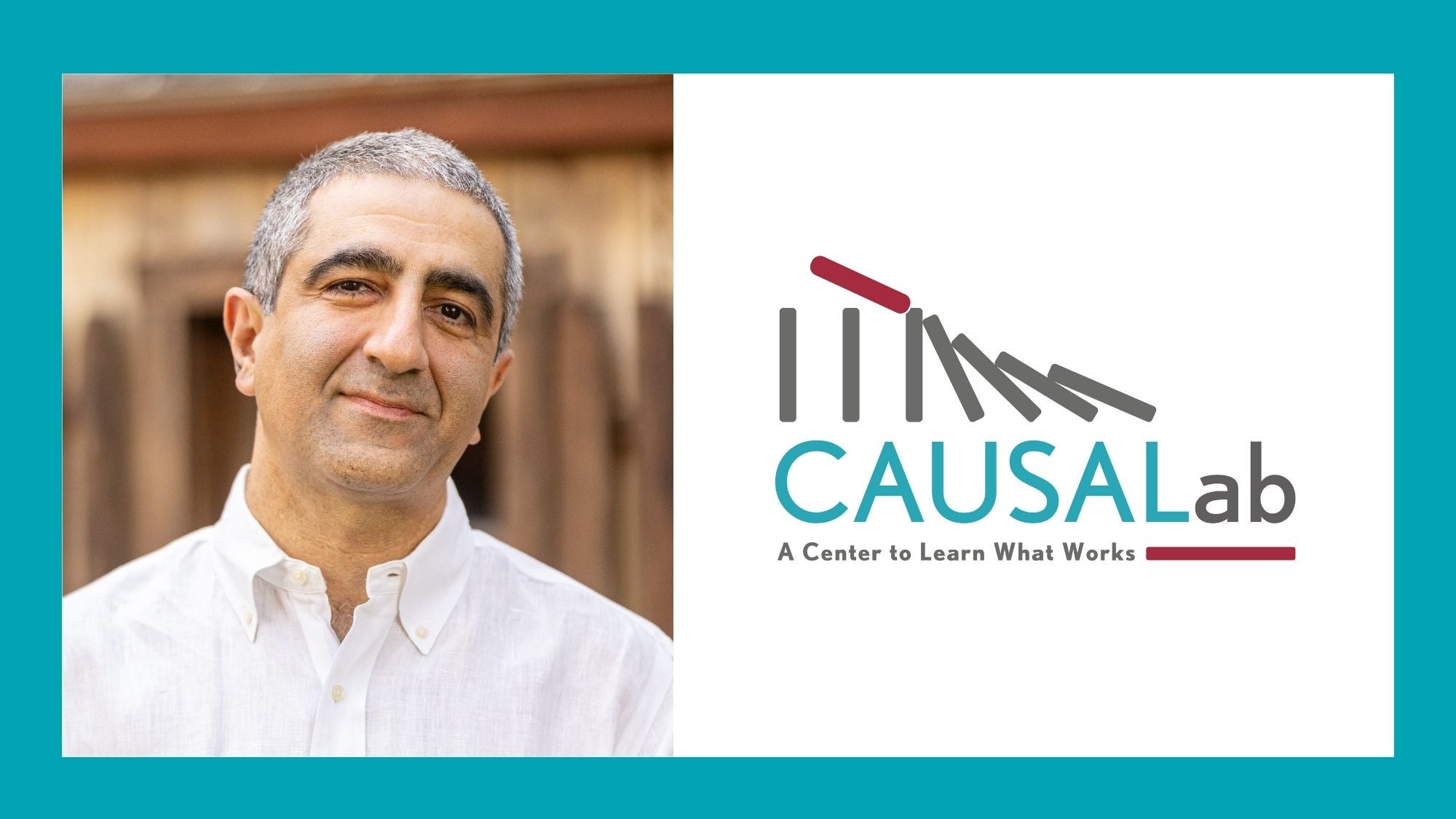Harvard Chan DrPH program celebrates 10 years preparing public health leaders
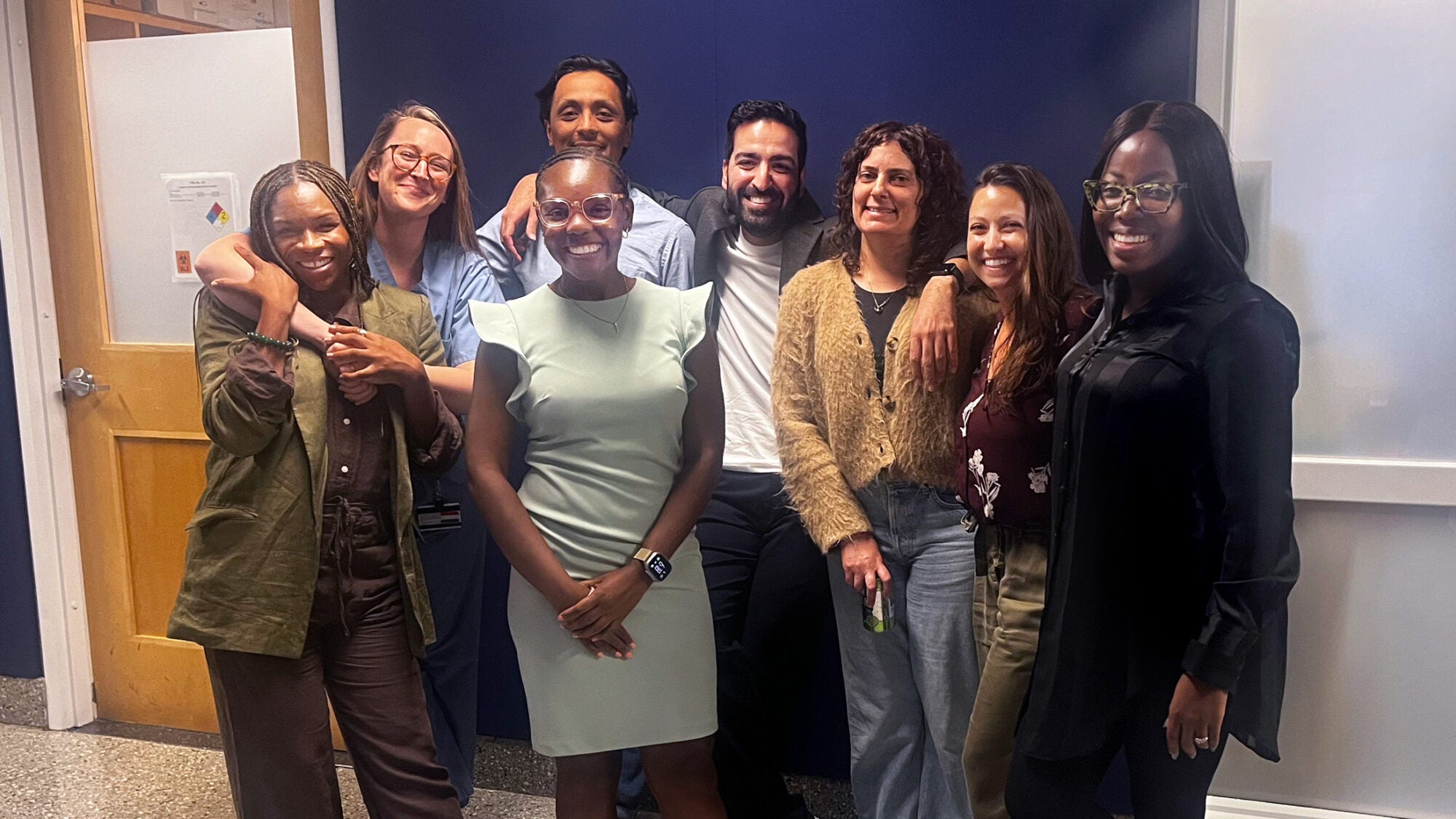
Brenda Onguti, DrPH ’23, began her career as a pharmacist in her home country of Kenya. Working with HIV-positive patients from poor backgrounds, she noticed that they were particularly vulnerable to infectious diseases, and wondered how she could address the issue from a broader policy and systems perspective. Inspired to transition to the field of public health, she completed an MPH degree—and then found herself considering her next step.
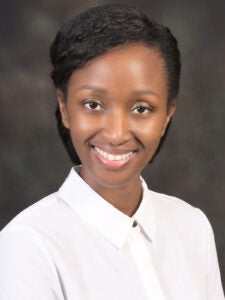
“Once I graduated, I knew that I needed to go back [to school] and do a doctorate. But I didn’t want just to learn more research, to do more studies. What I wanted was to know, how do I bridge the evidence-practice gap?” Onguti said. “We currently have such great high-impact interventions within public health that can elevate people’s health and well-being, but often it’s not really being practiced.”
Her research led her to the Doctor of Public Health (DrPH) program at Harvard T.H. Chan School of Public Health, which is designed to prepare mid-career public health professionals for high-level leadership positions in a wide range of organizations, from hospitals to nonprofits to government agencies. Over 3-4 years, students hone their skills by taking courses, participating in field immersion experiences, and completing a doctoral project and thesis.
The program, which marked its 10th anniversary in 2024, combines the research emphasis of a PhD degree with the practical application involved in an MPH degree, according to Richard Siegrist, program faculty director and senior lecturer on health care management. “The DrPH program blends the best of both worlds,” he said. “It’s a place where people can come get a really good education and then go out there and be much more impactful than before.”
He said the program, which has accepted only 10 students per year in the past, accepted 15 for the 2024-25 academic year. “Expanding the cohort size has enabled us to admit more highly qualified students and will improve the learning experience in our DrPH-specific courses,” said Siegrist. “The larger group will enhance classroom dynamics and deepen peer learning.”
Along with passing the 10-year mark and growing in size, the DrPH program is also celebrating several significant donations (see sidebar) that will help provide support in the years to come.
Classroom work, field work

Coursework in the DrPH program covers a variety of subjects, including leadership, innovation, financial management, and communication. At the core of the curriculum is a sequence of courses that focuses on developing leadership skills on three different levels—individual, organization, and system.
“By the time students complete our DrPH courses, they have a clearer sense of how they show up as leaders—what’s working for them and what may need to evolve,” said Siegrist. He added, “These are accomplished mid-career professionals who’ve made the bold and reflective decision to step back from their current roles, deepen their leadership capabilities, and return to their work with greater impact. It’s a vulnerable and deliberate act—pausing a well-established identity in order to reshape it with intention and purpose.”
Siegrist noted that the in-person experience is an important aspect of the program. “Many DrPH programs are offered primarily online,” he said. “At Harvard Chan School, you get to know people in your cohort much better. You get to know the faculty much better. You are more immersed in the School, and you have the ability to take on leadership roles,” he said.
Field immersions are another major component of the DrPH program, highlighted by an 8- to 10-week summer immersion and an eight-month doctoral project in which students work with a host organization to address a critical public health issue. Both opportunities give students the chance to apply concepts learned in their coursework to real-world settings.
The student experience
Prior to starting the DrPH program in July 2021, Kevin Linn, DrPH ’25, worked in strategic health policy, with a focus on improving access to cancer care for Indigenous communities in Canada. For him, participating in the program meant having a chance to apply what he’d learned in his work in an academic setting, as well as delve into other complex health policy challenges at a global level.
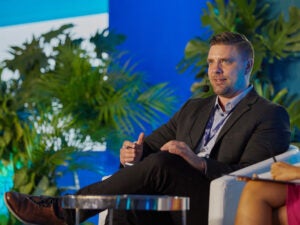
For his doctoral project, he did a research fellowship at Gates Ventures—the private office of philanthropist Bill Gates—where he explored the health effects of climate change, the role of philanthropy in addressing the issue, and methods for sparking innovation. To conduct his research, he connected with more than a dozen philanthropic and global health organizations around the world to learn about their work. “We found that philanthropies lacked organizational strategy and were struggling to define and evaluate their climate change and health work,” he said.
In his thesis, Linn developed a taxonomy of climate change and health solutions pathways to support organizations. Each pathway is defined by a description of climate change drivers, the impact of drivers on individual pathophysiology or social systems, health outcomes, relevant adaptation and mitigation solutions, and Sustainable Development Goals (SDGs) targets. As a framework, the taxonomy aids strategic decision-making, and supports coordination and collaboration within and between organizations.
A desire for impact
Another student in the 2025 DrPH graduating cohort, Erika Willacy, came to the program after a dozen years at the Centers for Disease Control and Prevention, where she worked in global health. She had begun to question whether certain global health efforts were having enough impact. For instance, during the COVID pandemic, she recalled being at a meeting where colleagues were discussing the importance of equitable vaccine distribution. At the time, distribution in the U.S. was climbing rapidly, while in Africa and some parts of Asia it was moving much more slowly, “almost to the point of barely being perceptible,” she said. As weeks passed and the situation remained basically the same, she found herself becoming increasingly frustrated.
“I really started to think about how much impact we were really having if these things were being discussed and maybe even being put in reports, but at the end of the day were not actually being translated into action,” she said. “That is a big part of what generated my interest in applying to the DrPH program.”
She said that the program has helped her think about how to accelerate change when it comes to complicated public health problems, “from how to set up the culture of a team that I would lead, to how to take a complex problem apart and think about it systemically, to how to address that complexity in order to overcome a particular challenge.”
For her doctoral project, she created a framework to help public health institutes around the world—entities similar to the CDC—achieve greater impact. To develop the framework, she interviewed public health experts around the world and conducted several case studies. One of the case studies included details on Bangladesh’s response to a rise in deaths due to dengue fever, a disease spread via mosquitoes. Willacy found that even though there are strong surveillance systems across Bangladesh to detect dengue, gaps in systemic functioning and collaboration meant that preventive measures were not taken. National governments and community governments did not necessarily have good working relationships with one another—which meant, for example, that one community might take steps to reduce standing water where mosquitoes breed, but another might not, making overall efforts to reduce the spread of dengue less effective.
In her doctoral thesis, Willacy also outlined several “strategic accelerators” to overcome such roadblocks, such as focusing on creating systems that understand when to pivot and evolve to new and changing contexts. She also encouraged government public health systems to utilize the expertise of populations and invest in true collaboration with them to optimize progress.
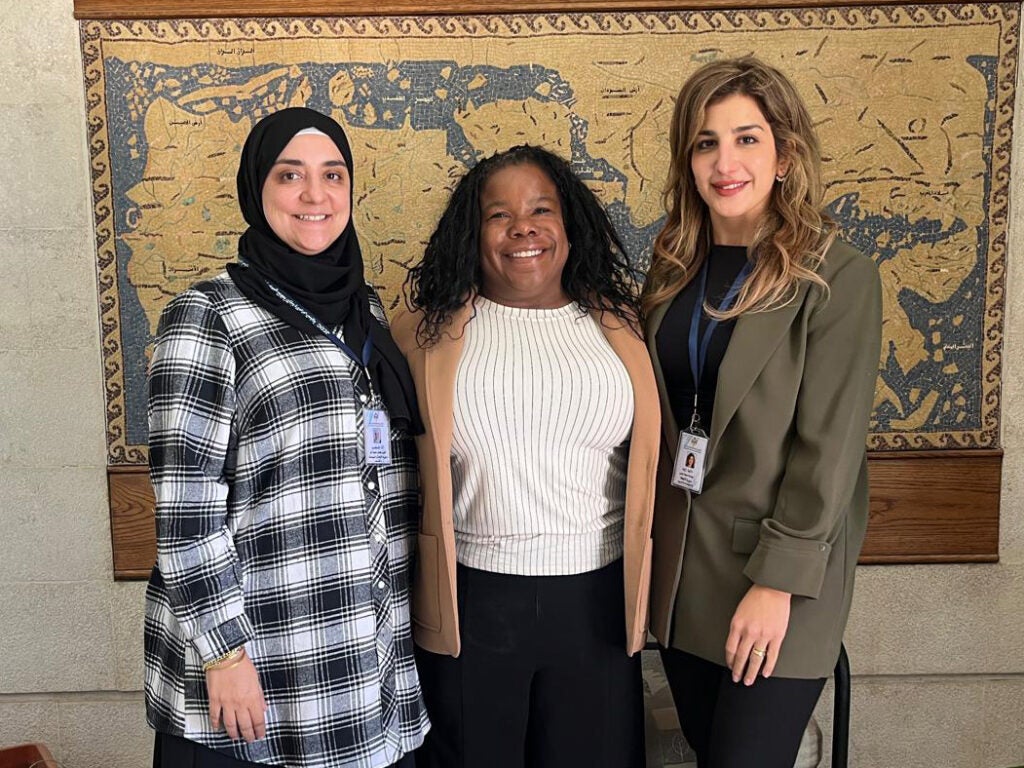
Alumni perspectives
During Onguti’s time at Harvard Chan School, she became particularly interested in implementation science—learning how to take a public health intervention that has been tested in a research setting and bringing it into practice. For her doctoral project, which was funded by the Tessa Jowell Research Fellowship through the Harvard Ministerial Leadership Program, she focused on preconception care in Zambia, identifying gaps and opportunities in the health system in order to make recommendations for integration.
Since graduating, Onguti has been making good on her goal to bridge the evidence-practice gap. For example, she has worked as a consultant for the nonprofit organization Jhpiego, developing a strategy to scale group antenatal care across low- and middle-income countries globally. To address the shortage of maternal health care providers, pregnant women of similar gestational age receive care in a group setting where they can discuss common challenges with each other, while also having access to clinicians. “It’s an empowering [experience], being able to get solutions from other women and support from your health provider,” she explained.
Reflecting on her overall experience in the DrPH program, Onguti said that a highlight was the mentoring she received. “There’s such a great support system by the professors,” she said. “Having an open-door policy so that you could talk to your professors—and them being able to advise you not only in terms of the course or program itself, but on other aspects of life—really stood out to me.”
Stephanie Kang, DrPH ’21, grew up wanting to become a leader in the health care field, but she felt that meant going to medical school to become a doctor. While working toward that goal, she came across information about the DrPH degree and immediately shifted gears.
“As my understanding of healing evolved—from focusing solely on medical services to recognizing the conditions that make and keep people sick—I began searching for a program that could equip me with the tools and skills to address those deeper systemic issues. That’s when I learned about the DrPH program and immediately recognized it as a unique space for intentional, practice-based learning that I couldn’t find anywhere else,” she said. “So, I made the decision to continue working in two different community-based non-profits full-time and enrolled in a part-time master’s program to better position myself for the DrPH. I knew this was the kind of training I needed to lead change in a more meaningful way.”
She decided to apply to the DrPH program at Harvard Chan School because of its unique approach to leadership training—providing not just courses, but also other resources such as executive coaching. Each student is paired with a professional coach outside the School who has experience working with C-suite executives and helps them pursue their career goals.
During Kang’s second year, she received a job opportunity to work in the office of U.S. Rep. Pramila Jayapal (D-Wash.) as a health policy fellow, focusing on universal health care. With the encouragement of her program advisor, she moved to Washington, D.C. for the position while finishing up her coursework remotely, and ended up writing her doctoral thesis on the same topic. She currently serves as the inaugural deputy assistant commissioner of health equity in the Massachusetts Department of Public Health.
“When you’re in leadership roles, especially in fast-paced environments, it’s incredibly hard to pause and reflect on your purpose—on why you do the work,” Kang said. “The DrPH program gave me a rare space to step back, connect deeply with others who had been through similar challenges, and ground myself in the kind of leader I wanted to be—especially in moments of difficulty and doubt.”
Generous donations aimed at reducing financial barriers for DrPH students
Harvard Chan School has received several significant gifts from generous donors for the DrPH program.
The Robert and Ardis James Foundation recently gave $1 million. And another $500,000 was contributed by an anonymous donor.
Both gifts will support financial aid. And both are being matched dollar-for-dollar, thanks to another anonymous donor with a longstanding commitment to removing financial barriers for exceptional students. In 2023, that donor said they’d match all financial aid gifts to the DrPH program up to $2 million. Previously, the donor had provided matching funds for several gifts from multiple donors totaling more than $500,000. With the two new gifts totaling $1.5 million, the challenge is now complete.
“These generous donations will enable us to significantly reduce financial barriers for students,” said DrPH program director Rick Siegrist. “Investing in this program can make a powerful impact, as demonstrated by the accomplishments of our alumni. They have taken on leadership roles in major government health agencies, led innovative initiatives in domestic and international organizations, and shaped influential policy and operational efforts.”
